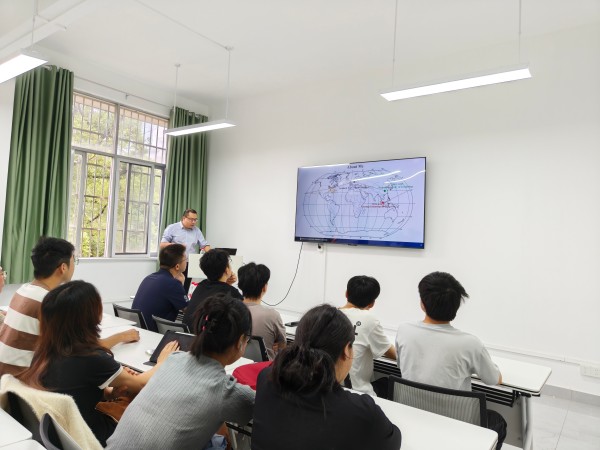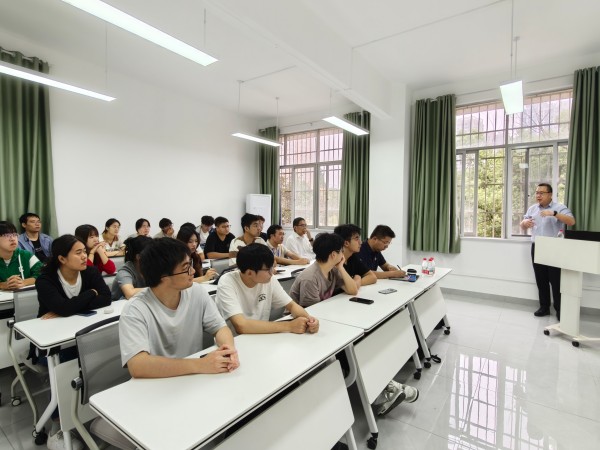Welcome to the School of Automation of Wuhan University of Technology!
Welcome to the School of Automation of Wuhan University of Technology!
Welcome to the School of Automation of Wuhan University of Technology!
On the morning of October 12, 2025, the School of Automation invited Professor Wei Lei from the School of Electrical and Electronic Engineering, Nanyang Technological University (NTU), to return to his alma mater and deliver an academic lecture entitled Intelligent Textiles: Weaving "Functions" into Fibers, Wearing "Intelligence" on the Body in Classroom 208 of the East Annex Building. The lecture was chaired by Dean Zhou Keliang, and representatives of some teachers and students from the School of Automation attended the event.
Professor Wei Lei is a 2005 undergraduate alumnus of the School of Automation, Wuhan University of Technology. He later obtained his doctoral degree from the Technical University of Denmark (DTU) and conducted postdoctoral research at the Massachusetts Institute of Technology (MIT). Currently, he serves as a Full Professor, Provost's Chair Professor, and Associate Dean of the School of Electrical and Electronic Engineering at NTU. He also holds the position of Director of the Fiber Optic Technology Research Center and was elected a Fellow of the Optical Society of America (OSA) in 2025.

The lecture started with the history of textiles and systematically reviewed the development context of high-tech fibers. Professor Wei Lei pointed out that through industrial methods such as thermal drawing, various functional materials—including optical, electrical, magnetic, acoustic, thermal, and mechanical materials—can be integrated with fibers, enabling innovative applications in numerous fields ranging from communication and energy to artificial muscles, healthcare, and neuroscience. During the lecture, Professor Wei used the snake's swallowing process as a metaphor to vividly demonstrate the structure and function of semiconductor fibers, as well as how these fibers can mimic the "five senses" of humans. He also conducted an in-depth analysis of the key challenges in semiconductor fiber manufacturing and highlighted a series of important progresses made by his team in the field of multi-material fibers. These innovative achievements not only innovate on the basis of existing fundamental functions but also show broad application prospects in fields such as healthcare, opening up a new path for intelligent textiles to move from the laboratory to practical applications.

In the interactive session, Professor Wei Lei combined his own research experience to encourage the students present to proactively communicate with their supervisors, actively participate in academic conferences, and continuously follow cutting-edge developments. He also advised the students to cherish opportunities from various academic reports and conferences: they should not only pay attention to the latest advancements in the field but also develop the ability to raise high-quality questions, so as to stimulate innovative inspiration in interdisciplinary exchanges.
Dean Zhou Keliang encouraged the students, saying, "Young people should be aggressive. The path of scientific research will not be smooth sailing, but it is precisely these challenges that drive us to continuously break through the boundaries of cognition and acquire more knowledge to enrich ourselves within a limited time."